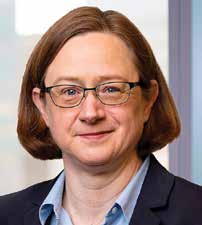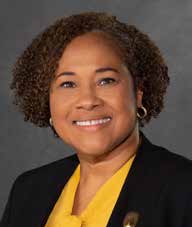Spring 2023
Faculty accomplishments and achievements
The Wilder School produces outstanding scholarship, service and leadership — locally and nationally
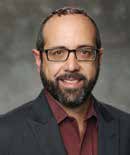
Damian Pitt, Ph.D., is a co-director for the newly created Institute for Sustainable Energy and Environment. VCU’s Office of Research and Innovation launched the center to address the existential threat of climate change. It is dedicated to creating sustainable energy systems and sustainable ecologies while educating students and working with community partners to meet these challenges. Pitt is an associate professor in the Urban and regional studies and planning program. He is focused on finding ways of reducing greenhouse gas emissions through energy conservation, renewable energy use, land use and transportation policies.
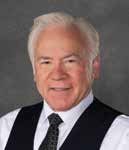
Jay Albanese, Ph.D., served as principal investigator for a joint cybercrime research project between VCU, Old Dominion University and Virginia Tech. The project, funded by a grant from the Commonwealth Cyber Initiative, analyzed data on cybercrime victimization experienced by residents and businesses across Virginia. The commonwealth was selected as the focus because of its large workforce in the maritime, defense and transportation sectors compared to other states. The project’s goal is to reduce exposure to cyber victimization across Virginia by identifying the highest-priority threats and cybercrime methods. The research then provided an assessment of geographic, demographic and industry variation in victimization across the state. Albanese is a professor in the Criminal Justice program. He is a fellow of the Academy of Criminal Justice Sciences and co-founder of Criminologists Without Borders. He is the author and editor of 20 books on organized crime, ethics, corruption, transnational crime and criminal justice.

Jeremy Hoffman, Ph.D., is the coauthor of a Richmond-based study that explored how walking in urban green spaces, compared to manmade settings, benefits physiological and psychological well-being. The study, “The impact of urban walking on psychophysiological well-being,” was conducted during the pandemic shutdown. It enlisted healthy adults from Richmond to take a 20-minute walk on two separate days. They were outfitted with sensors that tracked their heart rate and their exposure to heat, noise and air pollution in two different environments. One environment was a tree-lined street with homes, gardens and parks. The other environment was a busy street with traffic, shops and restaurants. The study concluded that walking in the green space increased positive mood and healthy heart rate variability, lowered thermal discomfort and exposure to air pollution, and could have implications on how to ease stress. Hoffman is the David and Jane Cohn Scientist at the Science Museum of Virginia and an affiliate faculty member in the L. Douglas Wilder School of Government and Public Affairs and the Center for Environmental Studies at Virginia Commonwealth University. He teaches physical geography at VCU and specializes in Earth science communication, data-driven and community-based participatory science, and science center exhibit content development.

Shruti Syal, Ph.D., is a recipient of a Wilder School Faculty Small Grant. It will support her continued research to find solutions to waste and water problems in Delhi, India. This grant will allow Syal to create a digital map to identify actors involved in infrastructure provision, their roles and their relationships. It’s an effort to improve communication and collaboration regarding otherwise conflicting agendas or actions for water treatment, waste management and infrastructure provision in the largely overlooked parts of cities, referred to as slums. Each year, the Wilder School awards two Faculty Small Grants of up to $10,000 for a project directly related to the scholarly trajectory of a faculty member.
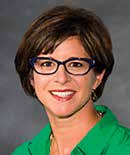
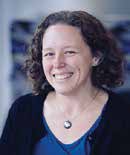
Meghan Gough, Ph.D., and Kathryn Howell, Ph.D., were awarded a Wilder School Faculty Small Grant for their research to develop a new process framework for urban planners that is forwardthinking and racially equitable. It will focus on three redevelopment proposals that had an impact on Black neighborhoods and exposed biased planning to identify the long-term impacts of urban renewal, highways and other redevelopments in Richmond, Virginia. Collaboratively, they will envision opportunities for reparative planning and redress policies. Gough is an associate professor and chair in the urban and regional studies and planning program. Howell is an associate professor in the urban and regional studies and planning program and co-director of the RVA Eviction Lab.
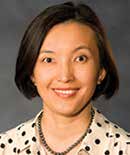
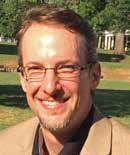
Saltanat Liebert, Ph.D., and Grant E. Rissler, Ph.D., piloted a needs assessment to identify barriers to integration that Virginia’s immigrants encounter. The assessment was commissioned by the Office of New Americans at the Virginia Department of Social Services. They interviewed 44 immigrants and 51 organizations serving immigrants and other community stakeholders. Based on their findings and geospatial data, they proposed several policy solutions to address the unmet needs of and barriers to integration. The solutions include creating a centralized, multilingual online portal and toll-free hotline that provides up-to-date information about services available and providing greater access to workforce opportunities matching immigrant skills to employment openings, certification recognition and career development programs. Leibert is an associate professor in the Center for Public Policy. Rissler (’17 P.P.A. from the Wilder School’s public policy and administration program) is the assistant director in the Office of Public Policy Outreach, Center for Public Policy.
Fran Bradford joins Capitol Semester program as new instructor
Fran Bradford joins the Wilder School’s Virginia Capitol Semester program as an instructor. She served as Virginia secretary of education under Governor Ralph Northam’s administration and is a senior vice president for McGuireWoods Consulting. Bradford brings more than 30 years of experience with the Virginia Legislature and is excited to join the program.
“I am thrilled to have the opportunity to be a part of the VCU Capitol Semester,” Bradford said. “This program and the Wilder School are without peers. From the hands-on experience of working during the session to having a chance to hear from policymakers across government, I am hopeful the students will have a meaningful experience. I know I am looking forward to learning from the students about their views of government and ways it can be more responsive to the views of those who will soon play important roles in it.”
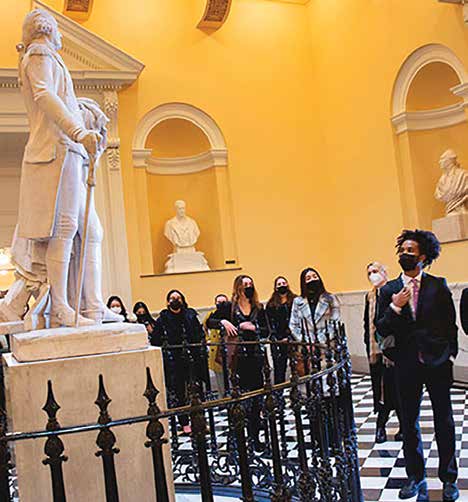
The Capitol Semester program helps undergraduates gain a better understanding of the legislative process, utilizing a two-pronged approach of classroom instruction and an internship at the Capitol. Students spend 15-20 hours per week working directly with members of the Virginia Legislature to learn the realities of formulating public policy. Paula Otto, instructor and senior director of special projects at the Wilder School, has taught the course for fifive years. In the classroom, she helps students grow a deeper understanding of the workings of the Virginia General Assembly.
The Virginia Capitol Semester began in 2006. As a fifinal assignment, students put their experiences to the test by presenting and defending a bill to their classmates’ subcommittees to see if it can survive the actual process. “The Capitol Semester program gives students the opportunity to not only learn the legislative process, but also to participate in it,” Otto said. “Their internship in a member’s offifice coupled with the classroom component creates a powerful experience.”
RaJade Berry-James leads NASPAA
Senior Associate Dean of Faculty and Academic Affairs RaJade Berry-James, Ph.D., is the newly elected vice president of the Network of Schools of Public Policy, Affairs and Administration. She continues the Wilder School NASPAA leadership as shared by past President Dean Susan Gooden during the 2021-2022 academic year. As vice president, she will provide leadership for the executive board and will assume the presidency for the 2023-2024 year. NASPAA is the globally recognized accreditor of master’s degree programs in public policy and administration and is dedicated to providing education and training for public service and promoting the ideals of public service.
Spring 2023 / In this issue
- Letter from the dean's office
- Boots on the ground: Chernoh Wurie
- “Triple Pandemic” book release
- VR and police interrogation
- Governor’s voice Q&A
- Bringing equity to emergency management and disaster
- Spotlighting evictions in Virginia
- Alumni spotlight: Myra Goodman Smith
- Verbatim: Bob Holsworth
- Faculty achievements
- Growing entrepreneurial equity
- Alumni spotlight: Joshua Son
- Why I give: Eva S. Teig Hardy
